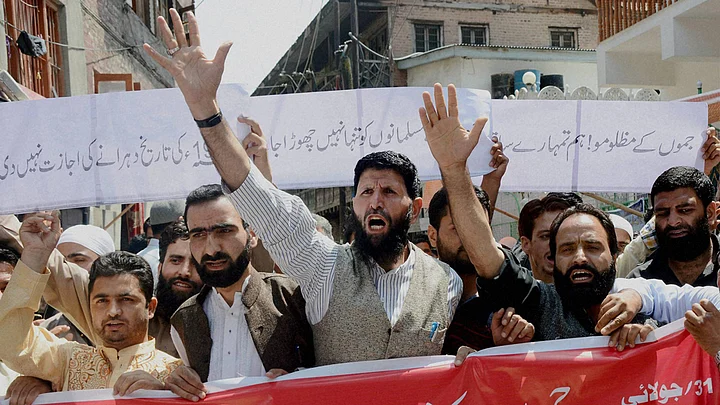Death Penalty Debate
- Yakub Memon’s execution should not be communalised as is being attempted by the likes of Owaisi
- Supreme Court calling for a midnight hearing does indicate fair judicial process
- One might debate the principles of justice being applied in Yakub Memon’s case or in the case of Maya Kodnani
Let’s not make it a Muslim being singled out to be hanged, as stated by Janab Owaisi and several others.
The statistics seem to indicate 72 Muslims vs 1342 Hindus (according to a report by the National Law University) and others being so punished by the Indian state. The media should also do its homework more thoroughly before giving it a communal spin, particularly the Urdu press.
While Yakub Memon was not quite arrested in Old Delhi, by all accounts, he did not surrender in Nepal either and was picked up at the Kathmandu airport when going through security. Then flown to India in an ARC plane (even if they did not do so in a clandestine manner, India has had an extradition treaty with Nepal from 1963 so he would certainly have been brought to India to face trial). The rest we all know.
Fair Judicial Process
I think his defence team over the years of trials did him no great favour and perhaps the facts coming to light that have so caught the nation’s imagination now (and justifiably) were not highlighted. Did they bring up that he was not arrested in Old Delhi and had entered into a “plea bargain kind of deal” with RAW? That he helped nail Pakistan’s involvement? I do not know. If the judges of the highest court of the land can hear his petition at 3 am, it indicates a fair judicial process.
From all that I have read, it does appear that he paid the price for being Tiger Memon’s brother. The benefit of doubt, particularly since it’s our stated position of being in the “rarest of rare” cases; a lesser sentence such as life or a harsher version of what Sanjay Dutt is undergoing (some similarities in the accusations) would have been more appropriate, in my opinion. And whether capital punishment ought to be removed from our statue or hanging by the neck makes way for a quick-acting lethal injection or the electric chair, is a separate discussion.
Double Standards of Justice
It has been asked, “Why did ordinary Indian Muslims react the way they did during Yakub Memon’s funeral? Were they not mourning a folk hero of theirs? With not even a passing thought about the nature of his crimes and what Memon and his group committed against the ordinary citizens of Mumbai? Can this Muslim psyche co-exist with the basic ethos and essence of the Indian Republic? Does it have any overlap with our core values?”
I feel that in the minds of many or some of the mourners one of two or both narratives could be running:
a) Yakub Memon attempted “revenge” against the atrocities perpetrated against the Muslims during the Mumbai riots and hence deserved their respect. More so, when the state has even to-date failed to book the perpetrators or compensate the victims adequately. So not a terrorist but fighting for a just cause for the community. The quote comes to mind, “One man’s terrorist is another man’s freedom fighter”! And not to forget the thought of double standards being applied – Kodnani gets one kind of punishment, the Memon another.
b) The other perception is that Yakub is an innocent who has been sent to the gallows in an uneven meting out of justice. Victimised largely because of being a Muslim. And hence the community was out in large numbers to show solidarity. So I don’t see any conflict with the ethos of the Indian republic, in this instance or being inconsistent with our core values.
Finally, in his death, the last line may be relevant “O Allah, Your male slave and the child of Your female slave is in need of Your mercy, and You are not in need of his torment. If he was pious then increase his rewards and if he was a transgressor then pardon him”.
(Manoj Mohanka is a businessman but more interested in affairs of state rather than the state of affairs. He follows politics and religion closely and runs a trust to educate Muslim girls from poor families.)
(At The Quint, we question everything. Play an active role in shaping our journalism by becoming a member today.)
